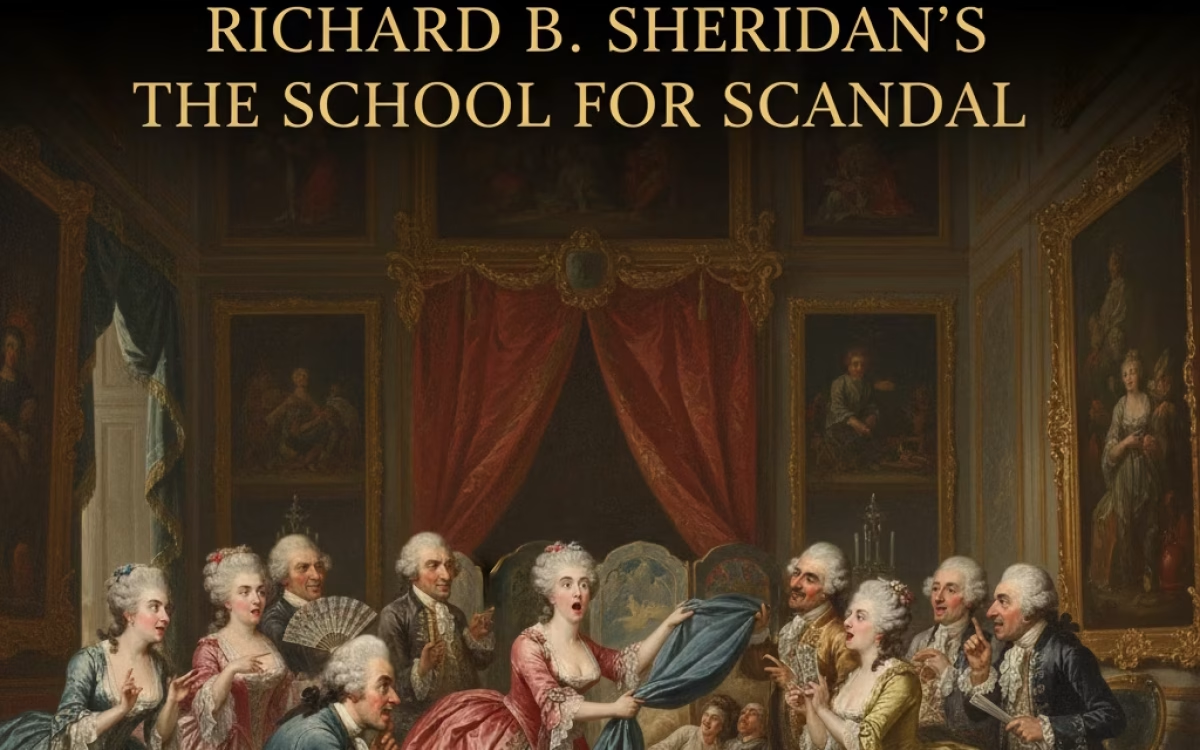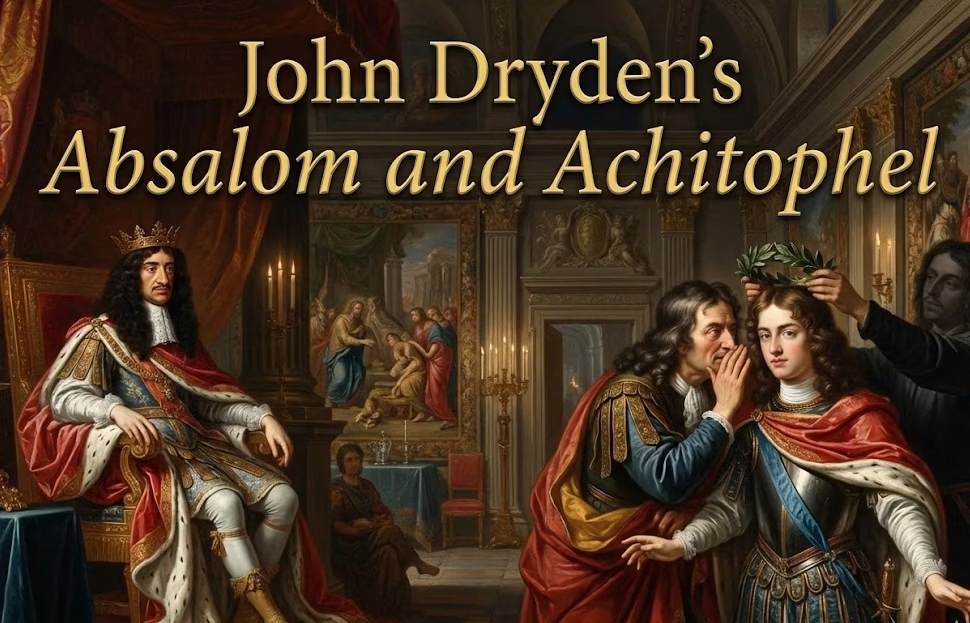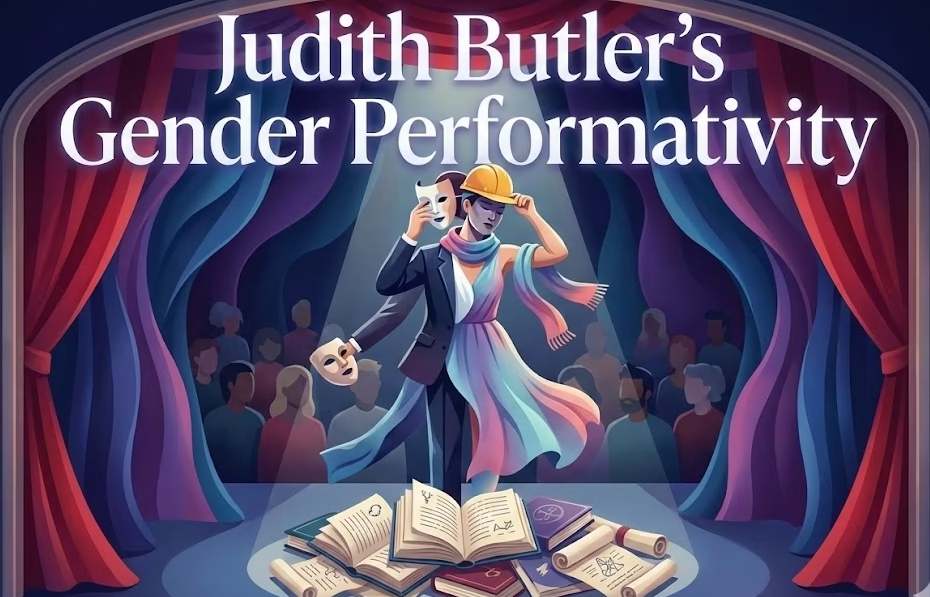Introduction
Richard Brinsley Sheridan’s The School for Scandal stands as one of the most celebrated comedies of manners in English literature, renowned for its sharp wit, memorable characters, and incisive critique of aristocratic society. First performed in 1777 at London’s Drury Lane Theatre, the play continues to captivate audiences and readers with its exploration of gossip, hypocrisy, and reputation. In this comprehensive analysis, we delve into the play’s plot, characters, themes, dramatic techniques, and enduring legacy.
What is The School for Scandal?
The School for Scandal is a satirical comedy that lampoons the social customs and moral duplicity of 18th-century London’s upper classes. Sheridan’s play masterfully intertwines two main plots: Sir Oliver Surface’s quest to determine which of his nephews deserves his inheritance, and Lady Sneerwell’s schemes to manipulate love and reputation for her own gain.
The School for Scandal: Plot Summary
The play opens in the dressing room of Lady Sneerwell, a wealthy widow notorious for her love of gossip and intrigue. She conspires with Joseph Surface, who appears virtuous but is secretly manipulative, to ruin the romance between Charles Surface (Lady Sneerwell’s love interest) and Maria, a wealthy heiress. Joseph himself seeks to marry Maria for her fortune, while Lady Sneerwell employs the unscrupulous Snake to spread rumours and forge letters.
Meanwhile, Sir Peter Teazle, an older gentleman, struggles with his young, fashionable wife, Lady Teazle, whose flirtations and spending habits fuel further scandal. Sir Oliver Surface, the wealthy uncle of Charles and Joseph, returns from abroad in disguise to test the true character of his nephews before deciding on his heir.
The play’s most famous scene—the “screen scene”—sees Lady Teazle hiding behind a screen in Joseph’s library as Sir Peter arrives, exposing Joseph’s duplicity and Lady Teazle’s near-compromise. Ultimately, the web of lies unravels: Joseph’s hypocrisy is revealed, Lady Sneerwell’s machinations are exposed, and honesty and virtue are rewarded as Charles is reconciled with Maria, and Sir Oliver chooses Charles as his heir. READ FULL TEXT
The School for Scandal: Characters
| Character | Description |
|---|---|
| Lady Sneerwell | The chief architect of scandal, skilled in gossip and deception. |
| Joseph Surface | Outwardly virtuous but inwardly scheming and hypocritical. |
| Charles Surface | Honest, generous, but reckless with money; ultimately proves his integrity. |
| Sir Peter Teazle | Elderly guardian of Maria, married to Lady Teazle; struggles with marital discord. |
| Lady Teazle | Sir Peter’s young wife, drawn to the allure of London society and scandal. |
| Sir Oliver Surface | The wealthy uncle who tests his nephews’ characters in disguise. |
| Maria | Heiress, the object of affection for both Surface brothers; values honesty and virtue. |
| Mrs. Candour | Pretends to be honest but spreads gossip under the guise of candour. |
| Sir Benjamin Backbite & Crabtree | Comic gossips who amplify the play’s satirical edge. |
Sheridan’s use of aptly ironic names—such as Lady Sneerwell, Mrs. Candour, and Sir Benjamin Backbite—immediately signals their roles and personalities, enhancing the play’s satirical tone.
The School for Scandal: Themes
Gossip and Reputation
The destructive power of gossip is the play’s central theme. Lady Sneerwell’s “school” is a metaphor for the way rumors are manufactured and reputations destroyed in polite society. Sheridan exposes how easily truth is distorted and how reputations are manipulated for personal gain.
Hypocrisy vs. Honesty
Sheridan contrasts characters like Joseph Surface and Lady Sneerwell, who cloak their selfishness in virtue, with Charles Surface and Sir Oliver, who, despite their flaws, are fundamentally honest. The play suggests that sincerity and integrity are rare but ultimately triumphant qualities.
Marriage and Social Mobility
Through the Teazles’ marriage, Sheridan satirizes the transactional nature of relationships in high society, where love is often secondary to wealth and status. Lady Teazle’s journey from country innocence to urban sophistication—and back again—mirrors the play’s critique of social climbing.
The Role of Women
Women in the play, from Lady Sneerwell to Lady Teazle and Mrs. Candour, wield significant influence through gossip and manipulation, challenging the era’s gender expectations. Sheridan’s female characters are complex, both victims and perpetrators of scandal. FOR MORE INFORMATION
Dramatic Techniques in The School for Scandal
Characterisation of Speech
Sheridan distinguishes his characters through their speech. Hypocrites like Joseph Surface use convoluted, artificial language, while honest characters like Charles and Sir Oliver speak plainly. This technique both entertains and reveals character.
Symbolic Names
The play’s character names serve as direct or ironic labels, providing instant insight into their roles. For example, Lady Sneerwell “sneers well,” while Mrs. Candour’s supposed honesty masks her love of gossip.
The Screen Scene
The “screen scene” is a masterclass in dramatic irony and stagecraft, with Lady Teazle’s concealment and subsequent revelation exposing the play’s central hypocrisy. This scene remains one of the most famous in English theatre.
Setting as Social Commentary
Settings such as Lady Sneerwell’s dressing room and Joseph Surface’s library reflect the private and public spaces where reputations are made and unmade, highlighting the performative nature of social interaction in 18th-century London.
Why Read or Watch The School for Scandal Today?
Timeless Satire: The play’s critique of gossip and hypocrisy feels as fresh in the age of social media as it did in Sheridan’s time.
Witty Dialogue: Sheridan’s language sparkles with wit, making it a delight to read or watch.
Complex Characters: The play’s characters are more than caricatures; their motivations and flaws are recognizably human.
Cultural Insight: It offers a window into 18th-century society, but its observations on reputation and virtue are universal.
Conclusion
Richard Sheridan’s The School for Scandal endures as a brilliant exploration of gossip, hypocrisy, and the complexities of reputation. With its clever plotting, unforgettable characters, and biting wit, the play remains a touchstone for anyone interested in the power of words and the follies of society. Whether you’re a student, theatre lover, or simply a fan of great literature, The School for Scandal offers a masterclass in comedy, satire, and human nature. EXPLORE MORE AUTHORS
Frequently Asked Questions
What is the significance of the title “The School for Scandal”?
The title refers to the informal “school” of gossip led by Lady Sneerwell, where scandal is both taught and practiced as an art form. It underscores the play’s focus on the destructive power of slander in shaping social reality.
What genre is The School for Scandal?
It is a comedy of manners, a genre that satirises the affectations and insincerity of the aristocracy.
What makes The School for Scandal a classic?
Its blend of sharp social critique, memorable characters, and enduring humour has kept it relevant and widely performed for over 200 years





